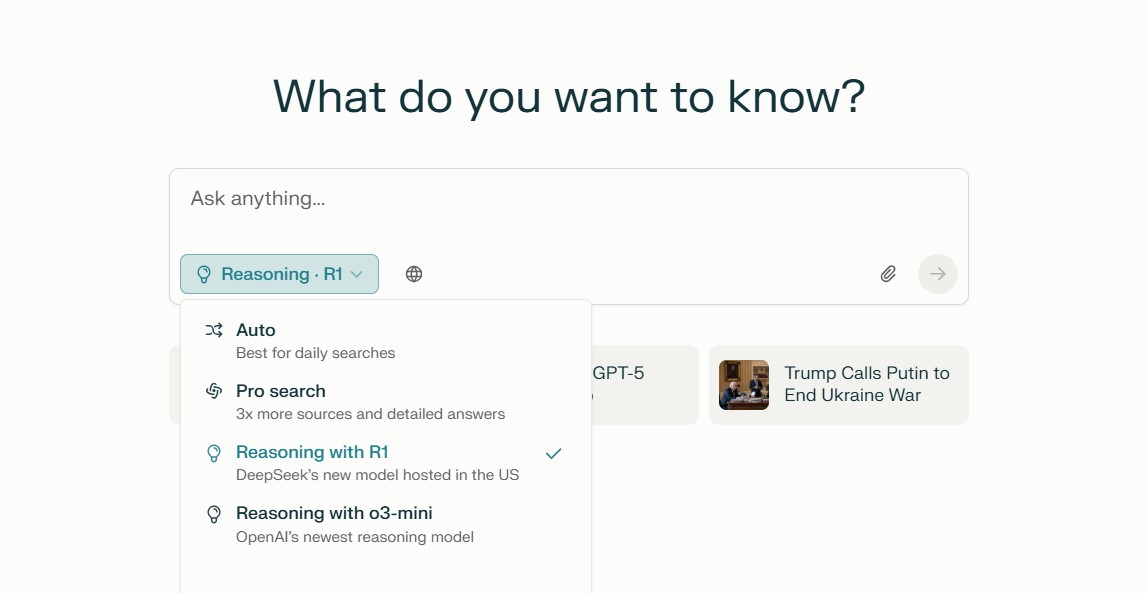It feels like just yesterday everyone was raving about DeepSeek’s potential, the Chinese-made open-source AI model that seemingly appeared out of nowhere to dominate app store charts. But now, a big question mark hangs over the conversation: “What about our data?” Is this groundbreaking tech potentially sending sensitive user info back overseas? Perplexity AI seems to think they have an answer, offering access to DeepSeek R1 on U.S. servers. Let’s dive into why this matters, and whether it truly addresses the underlying concerns.
When I first encountered this implementation of DeepSeek R1 on Perplexity AI, I knew we were witnessing more than just another AI integration. It’s a strategic response to the rising anxieties around AI accessibility and data protection. Perplexity is leveraging DeepSeek’s open-source nature to provide a version that’s not only uncensored but also operates under U.S. data security protocols.
Announcing the move, Perplexity CEO Aravind Srinivas described it as a “phenomenal experience,” while also acknowledging that there are limits on query volume—limits Perplexity is actively working to expand. Perplexity is able to add DeepSeek R1 because it’s open-source and freely available, which circumvents two key concerns: potential censorship from China and the risk of user data being sent back to the Chinese government. Srinivas promises that Perplexity has tweaked R1 to keep results uncensored and that all user interactions are kept secure on U.S.-based servers. He even used the classic test case, a search about Tiananmen Square, to demonstrate the AI’s uncensored capabilities within Perplexity.
So, how can you get your hands on this supposedly safer version of DeepSeek? To access the DeepSeek R1 model, you’ll need a Perplexity Pro account, which costs $20 a month or $200 a year. This subscription also grants you access to other models, like OpenAI’s o1. For now, you’ll need to use Perplexity on the web or through the iOS app, as the feature hasn’t yet arrived on Android. Android users can, however, explore the new Perplexity Assistant feature in the meantime.
The arrival and instant success of DeepSeek has seriously disrupted the AI landscape, with U.S. companies such as Nvidia and OpenAI now scrambling to compete with the R1 model. It can match the best models from the likes of ChatGPT for free, while using less processing power and less energy. DeepSeek has undeniably shaken up the AI world, but can its power be harnessed responsibly? Perplexity AI is stepping up to the challenge, promising an uncensored and secure experience. But is this a step forward or a risky gambit?
Market Impact Analysis
The integration of DeepSeek R1 into Perplexity AI could lead to a notable shift in the AI market. By offering an uncensored, privacy-focused version of DeepSeek, Perplexity is directly appealing to users who are wary of potential biases or data handling practices in other AI platforms. This move could put pressure on other AI providers to enhance their own privacy and security measures, or risk losing users to platforms like Perplexity.
Having spent the last decade deeply involved in both AI development and investigative reporting, I can tell you that the implications of this integration extend far beyond mere convenience. It’s a direct response to the growing demand for AI tools that respect user privacy and operate with transparency.
Ethical and Regulatory Examination
Privacy Implications: Perplexity’s decision to host DeepSeek R1 on U.S. servers addresses a significant privacy concern, ensuring that user data remains within U.S. jurisdiction. This is particularly important for users who are concerned about data security and government access.
Security Concerns: While Perplexity promises secure interactions, ongoing monitoring and security audits will be crucial to maintain user trust and prevent potential data breaches. The open-source nature of DeepSeek also means that the code is constantly being scrutinized, which can help identify and address potential vulnerabilities.
Ethical Considerations: The move to offer an uncensored version of DeepSeek raises ethical questions about the potential for misuse or the spread of misinformation. Perplexity will need to implement robust content moderation policies to mitigate these risks.
There’s no doubt lots more to come from DeepSeek and its rivals (and partners). You can find plenty of experts weighing in on what’s next, and the best place to keep up to date with the latest developments is at our blog. The AI space is anything but static. Just when you think you’ve got a handle on the latest developments, something new emerges to disrupt the status quo. It’s a thrilling, and sometimes unsettling, ride.





